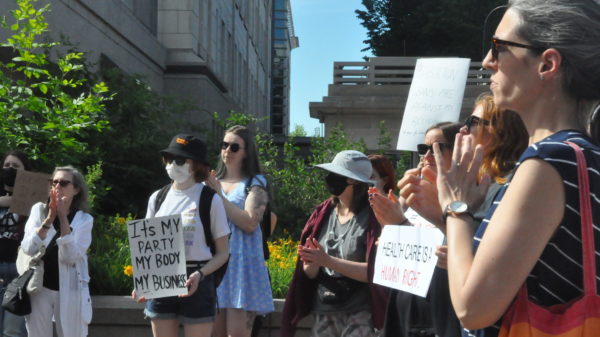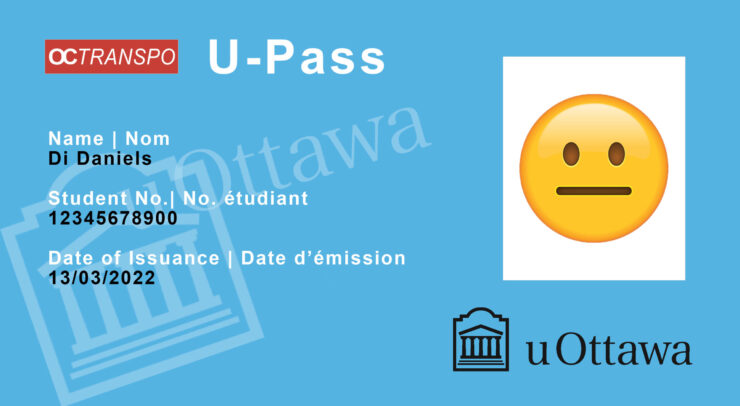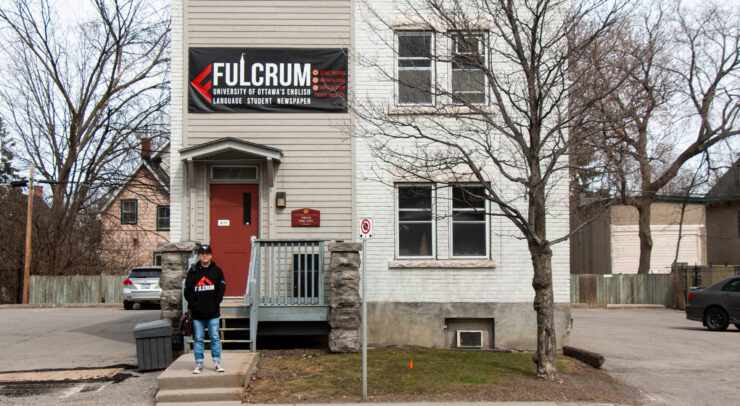“Power likes comfort.”
On Saturday, June 25, 2022, a number of impassioned protesters assembled peacefully along the Ottawa Embassy of the United States of America, conveying feelings of outrage and exasperation regarding the Supreme Court of the United States’ (SCOTUS) decision to overturn Roe v. Wade the day prior.
The 5-4 ruling produced by the dominantly conservative Court dismantled the single federal protection that guaranteed Americans the right to an abortion in the United States. As 13 trigger laws were already in place across the U.S., the effects of the case of Roe v. Wade was a shot heard across the country. For affected populations and pro-choice activists, this ruling echoed globally and, thus, reached the streets of Ottawa.
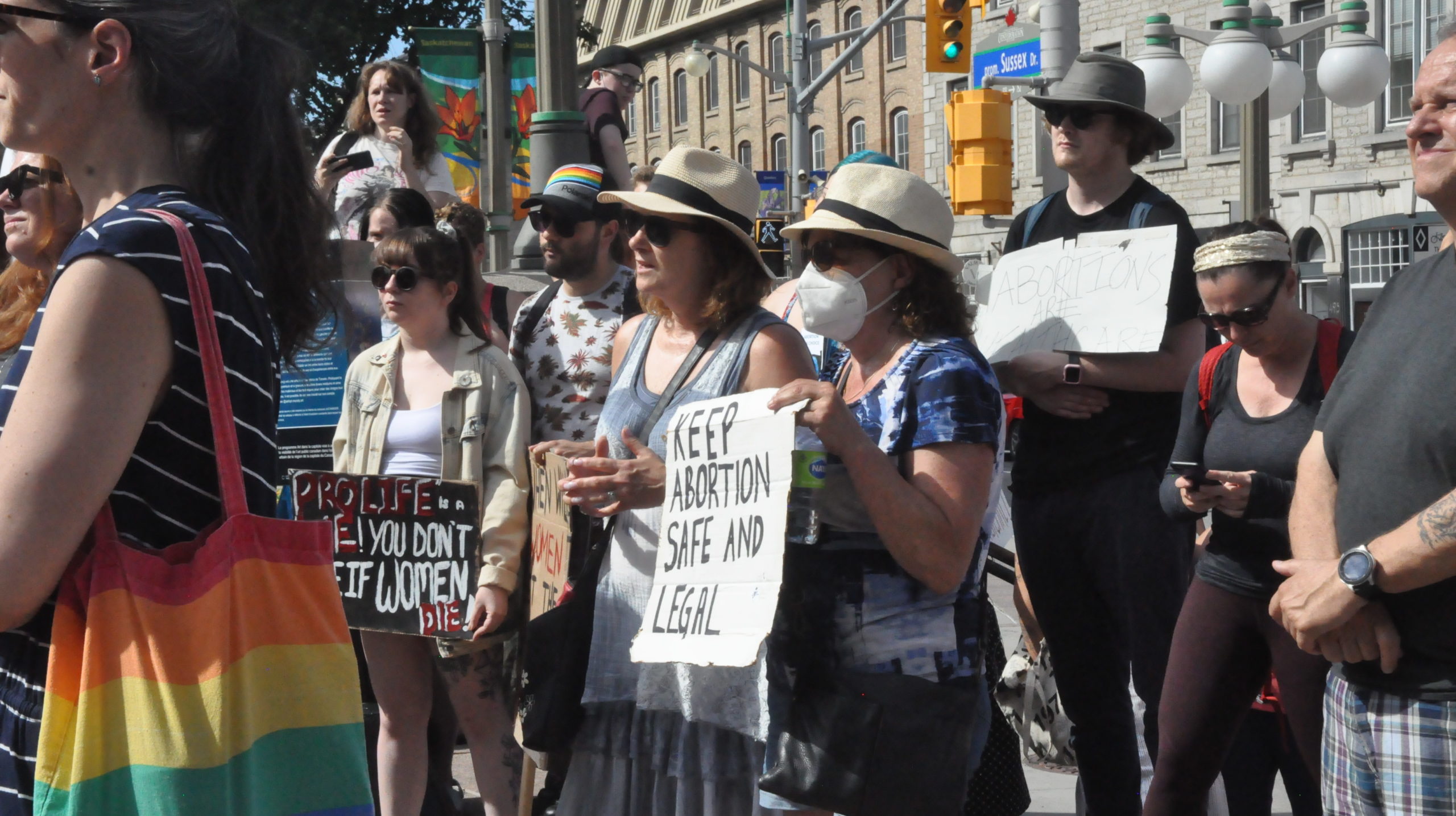
Gathered in sweltering heat, the air was not thick with humidity alone on Saturday. Rather, peaceful as the protestors were, their anger, frustration, and devastation hung in the air. Resonant chants of “shame” were hurled towards the U.S. Embassy, paired by matching signs of scrutiny.
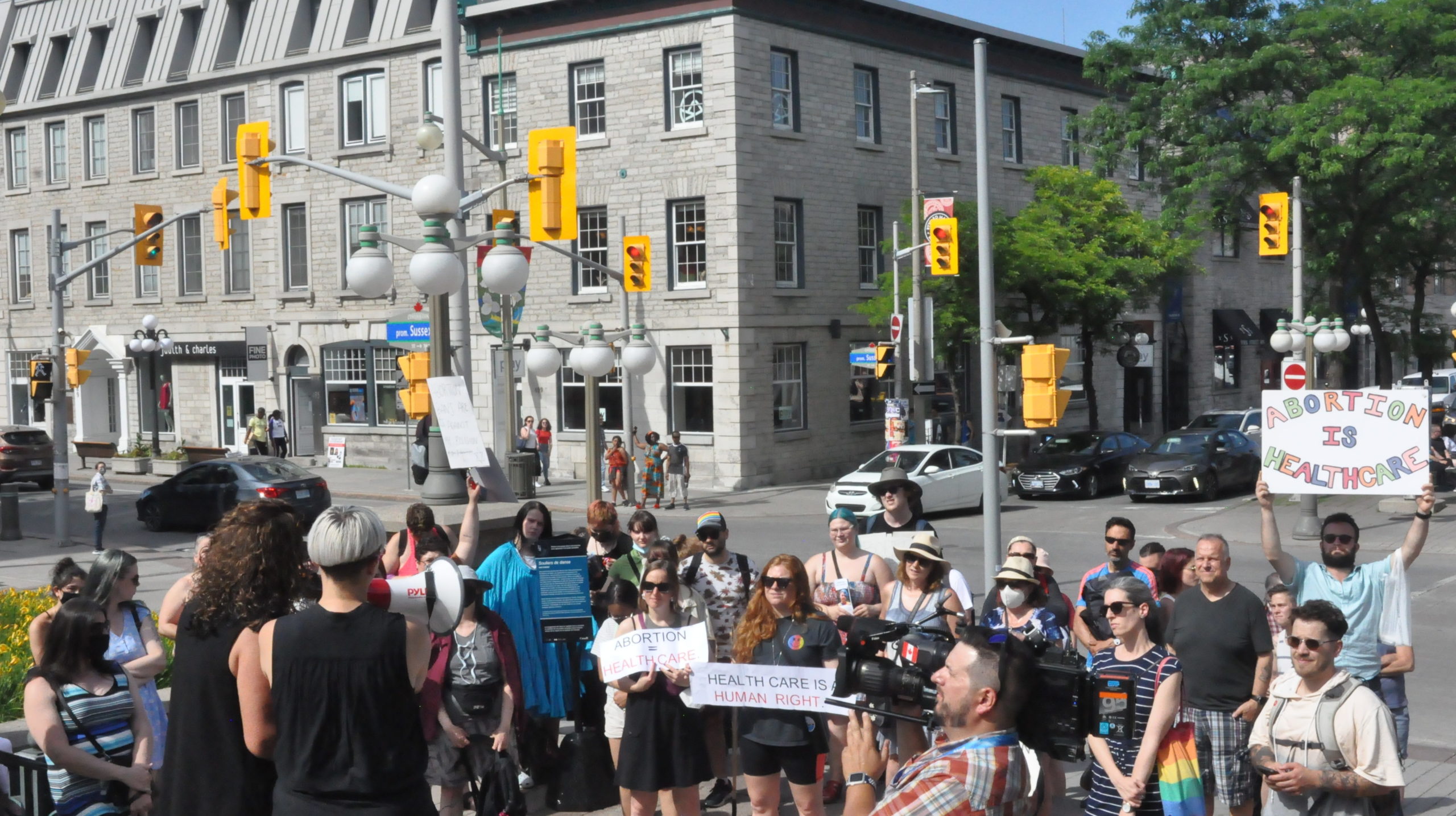
Meera Chander, cofounder of Defend Choice Ottawa, and Jaisie Walker, executive director for Planned Parenthood Ottawa, effectively and efficiently organized the protest.
“Part of that fight means that we show up as bodies together, and that we help feel our anger together, we help feel our solidarity together, and to really humanize this issue by actually being here in person, so that we can better organize, online and in person going forward,” implored Walker in an interview with the Fulcrum.
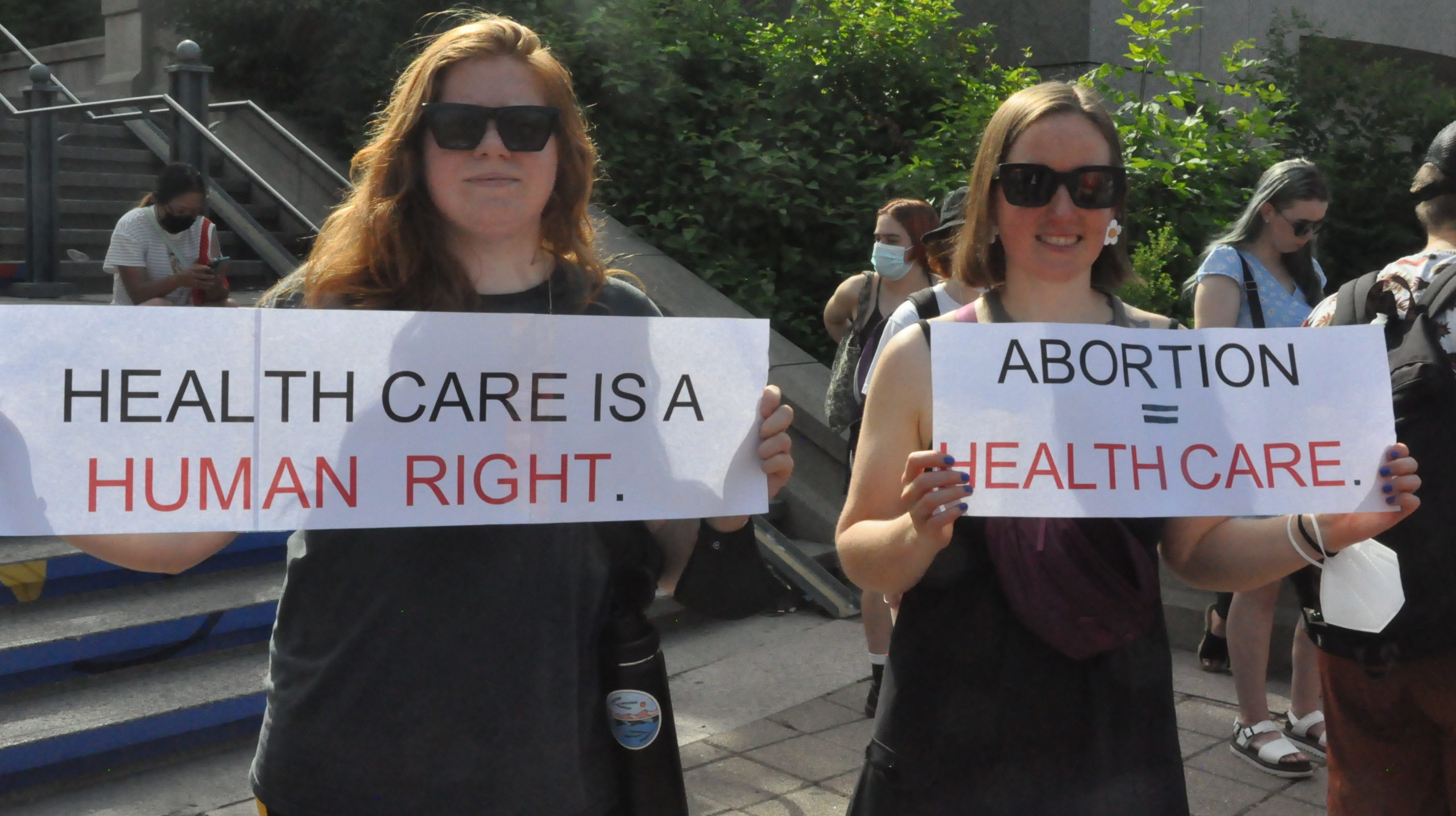
At large, the demonstrators of Sussex Drive made evident their overwhelming opposition to SCOTUS’s decision and the evasion of reproductive rights.
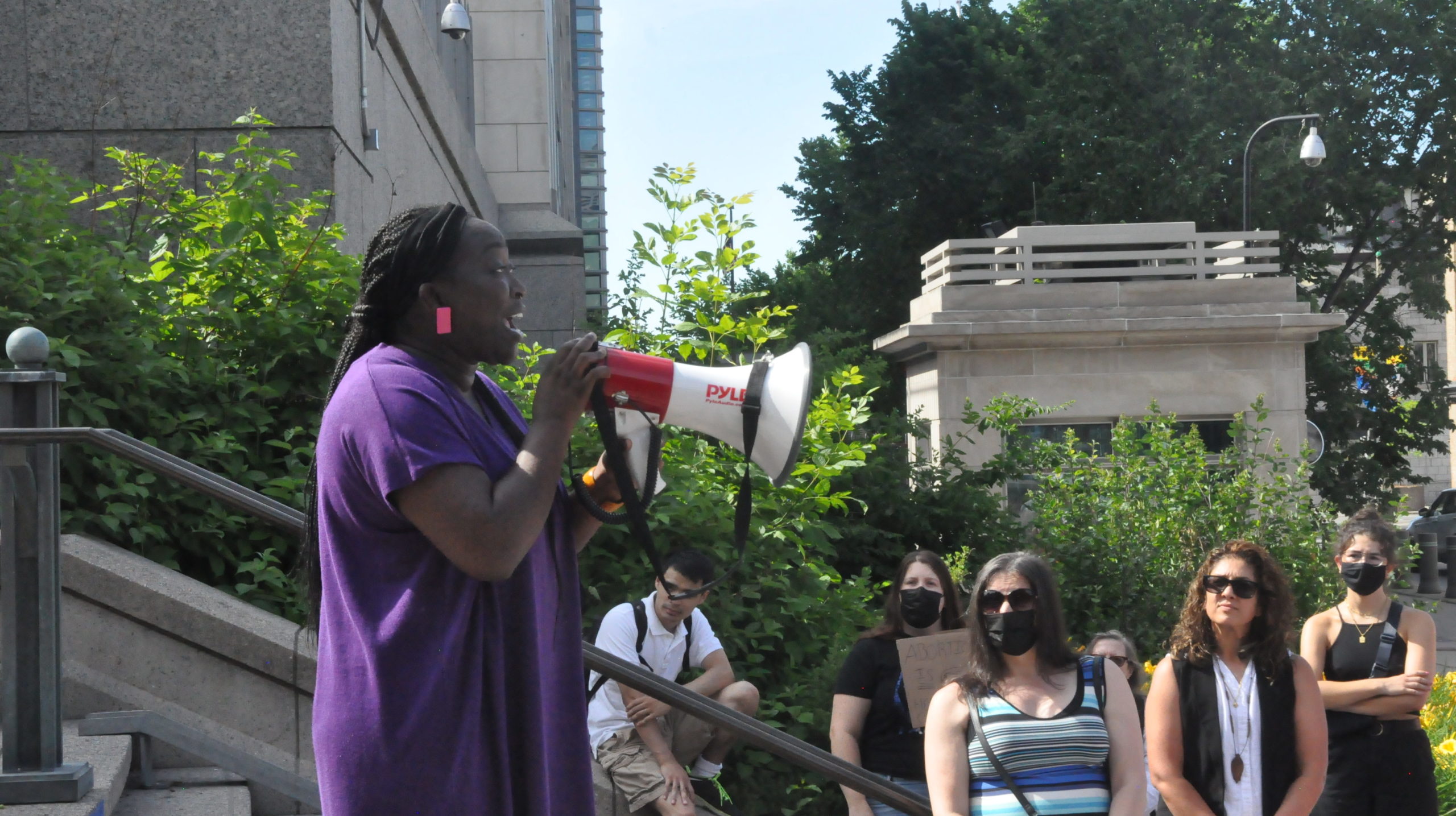
“My immediate feeling was anger. Anger towards the fact that a country that has significant power in this world, that positions itself as a beacon of democratic hope of your destiny; to see that it can advocate for the rights of people around the world and repeal to the ones for people who live in their own country — a country that Canada has a very strong, diplomatic bilateral relationship with,” stated executive director of the Canadian Center for Gender and Sexual Diversity, Debbie Owusu-Akyeeah.
This protest was marked by its location in Canada’s capital. Demonstrators passed Parliament Hill en route to the rally before spilling down the York Street Steps and assembling along Sussex Drive. There, they were met with Byward’s “Ottawa” sign, sitting comfortably in their eye line.
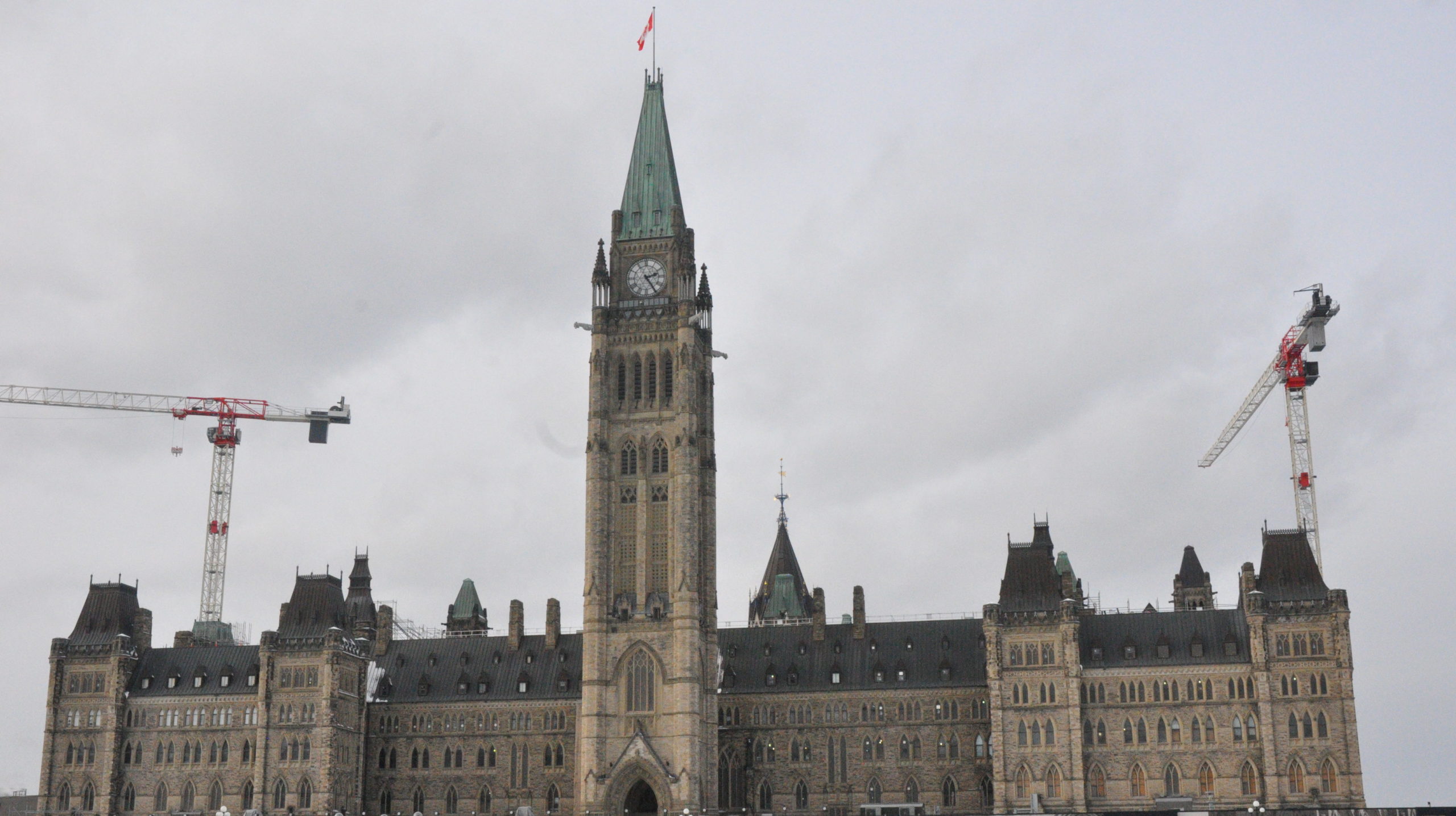
“People here in Ottawa, government town, […] we should never, ever, ever take for granted the rights that we have. These rights were never handed to us by the government directly. Leaders don’t wake up and say, ‘Hey, let’s give people rights.’ The stuff is bought by the people. It’s people’s power that moves the hands of [the] government. And if we want to protect our rights as well, that’s going to have to be driven from us. We can’t rely on decision makers, because power likes comfort,” remarked Owusu-Akyeeah.
“It’s important for us to demonstrate as well to the Canadian government that we won’t just sit idly by and allow things like that to happen in this country,” echoed Chander.
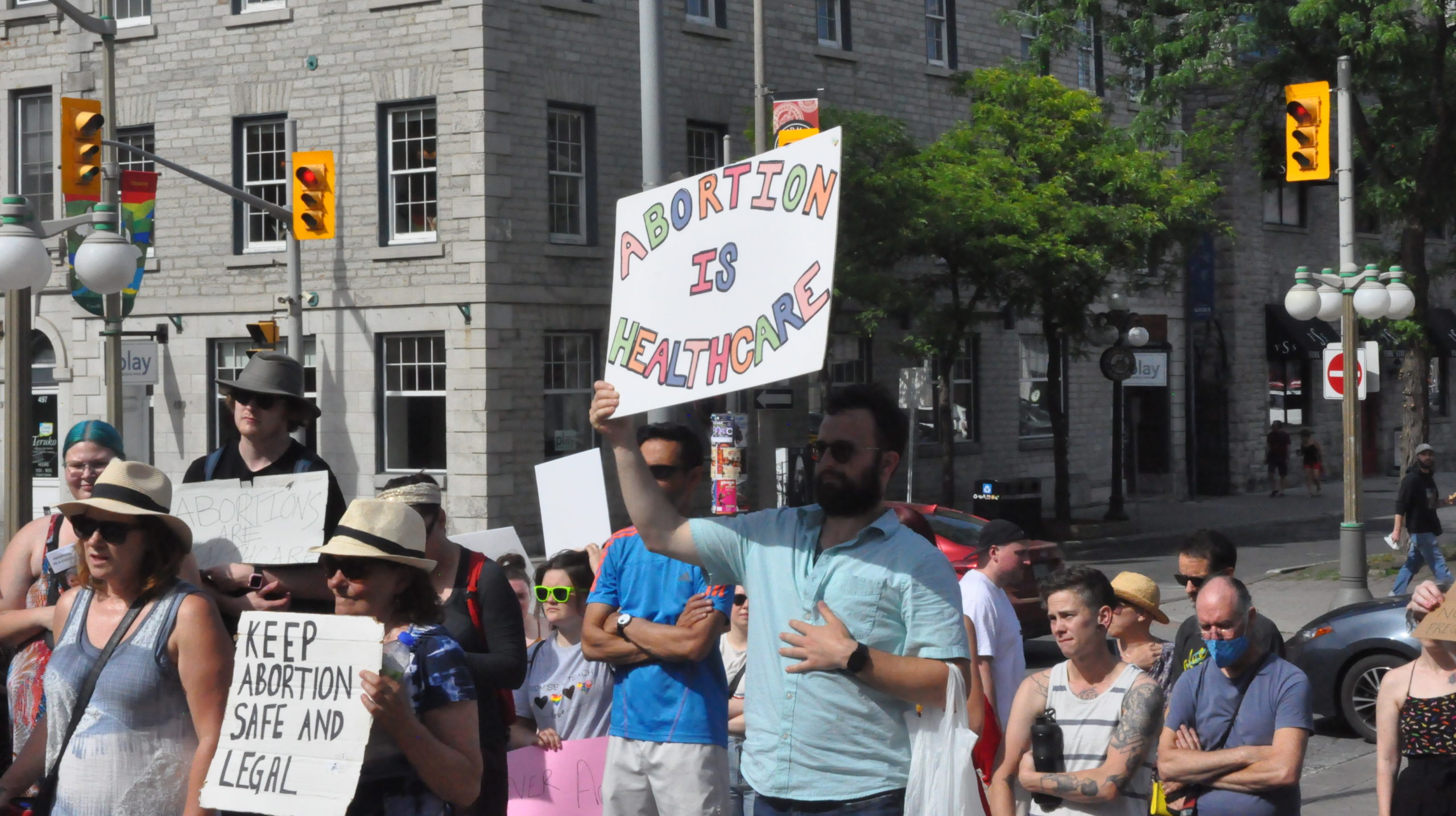
The setting of the rally is defined not only by its ‘where,’ but also by its ‘when.’ The fast action of organizers Walker and Chander allowed for the timely assembly of pro-choice activists on what will indubitably be recognized as a historic date in abortion rights history, irrespective of whether one celebrated or contested the overturning of Roe v. Wade. However, the timing of the gathering disposed demonstrators to a unique, distinct irony.
“While people have been invited today for a garden party at the US Embassy celebrating Independence, the Supreme Court of the U.S. is out there slashing human rights. What exactly are they celebrating?” Walker implored.
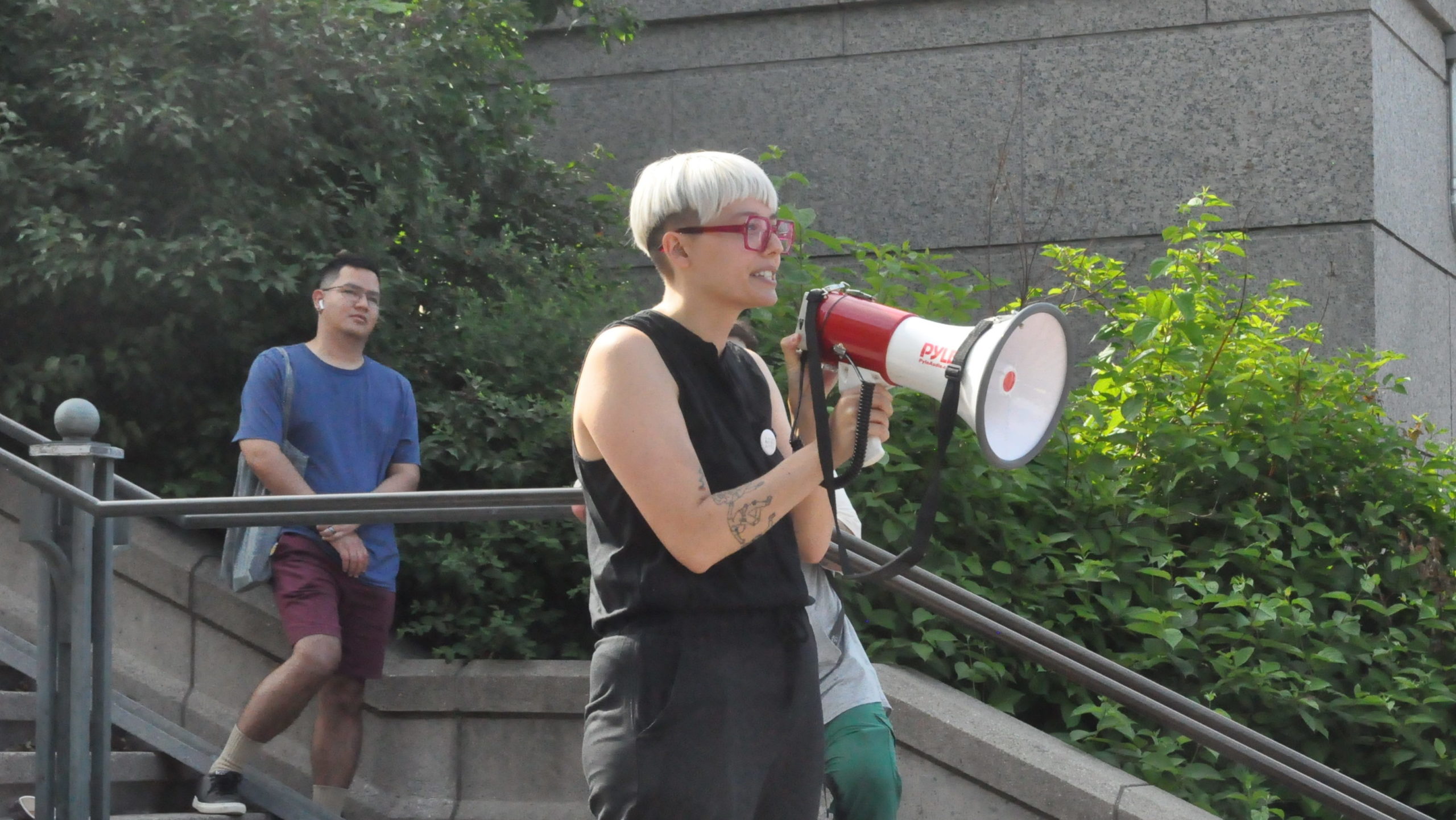
Whereas certain members may have attended their first pro-choice rally that day, others have been fighting an enduring battle against abortion rights abolitionists for far longer. Even so, the motivations of protesters were alike: to contest the overturning of Roe v. Wade, and any and all threats to a person’s right to choose.
“[The Supreme Court] should be ashamed of [their] violence. This will and has already ended so many lives […] The kind of fear that this enshrines people that can get pregnant —‑ it’s reprehensible to put anyone in that position,” said Walker.
“I’d like to ask [the Supreme Court] why guns in the United States have more laws and protection than human beings. I’d like to ask them what gives them the right to control what another human being does with their body. I’d like to ask them if they have a uterus and why they should get an opinion on someone else’s,” implored Alex Garcia, a participant in the demonstration.
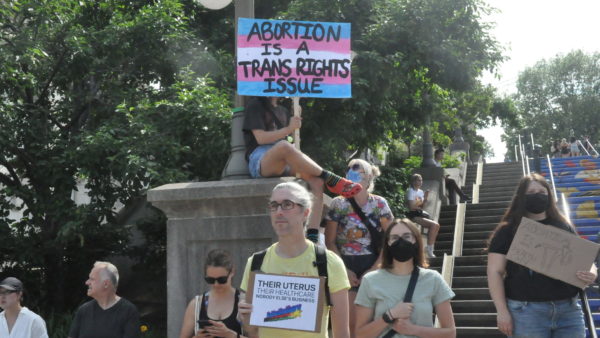
Garcia’s reference to the role of the uterus is emblematic of the importance of reproductive rights as a multi-gender issue rather than a women’s issue.
“Abortion is a trans-rights issue and there are plenty of women who can’t get an abortion, but there are many, many, many people who are not women who also need abortion access. So, I just want you to reflect that if your sign says women’s rights, that is not just a women’s rights issue, I’m not a woman and abortion does affect me. So, please reflect on that,” explained Garcia.
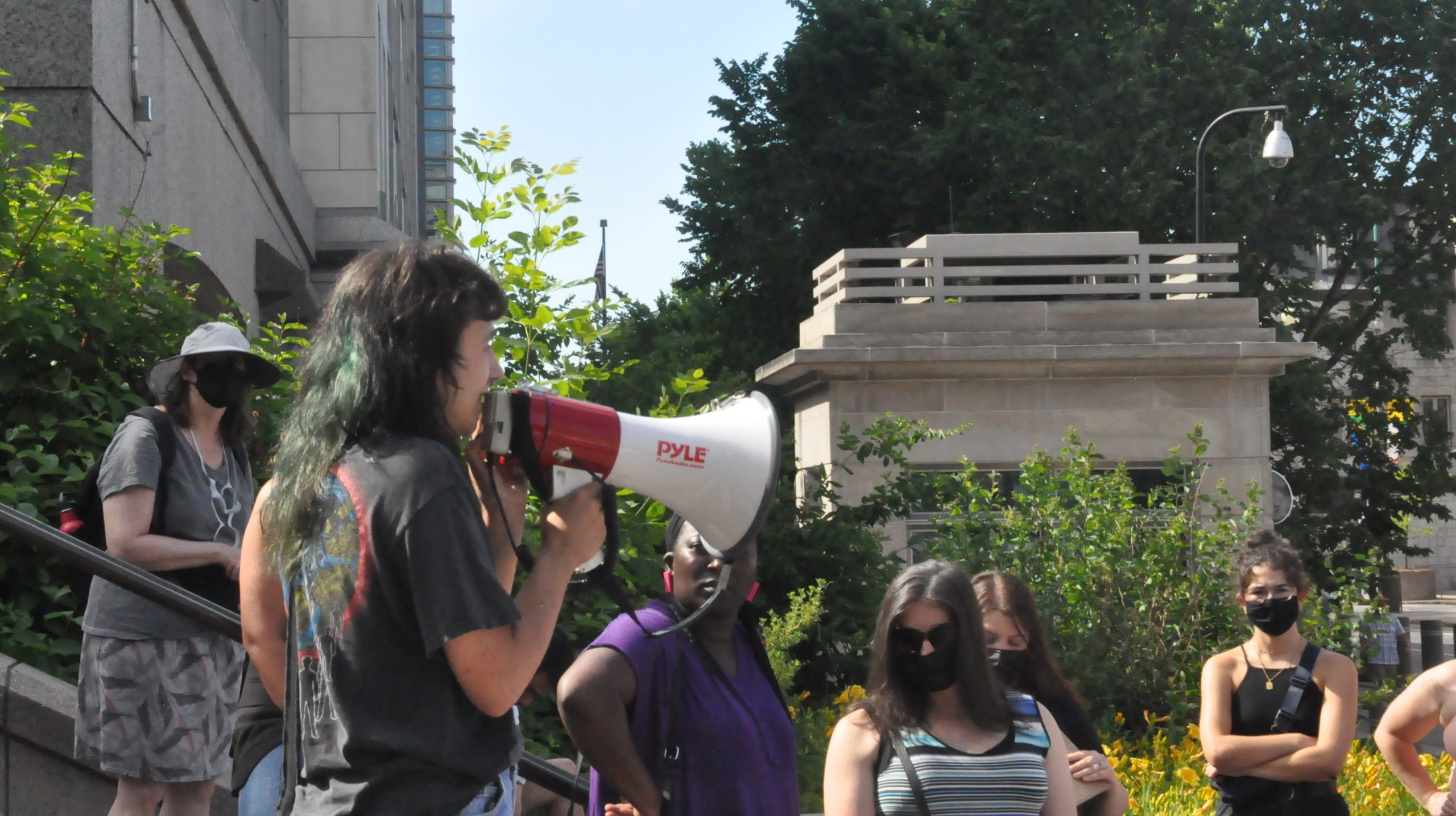
As the executive director of Planned Parenthood and staunch opponent to Canadian exceptionalism, Walker emphasizes the work that needs to transpire on the ground in Ottawa and in Canada at large.
“We want our community to see Planned Parenthood Ottawa as something that they can invest in. We want the City of Ottawa, we want the province, we want the federal government to invest in us […] We want people to take us seriously. We want people to dream with us,” commented Walker.
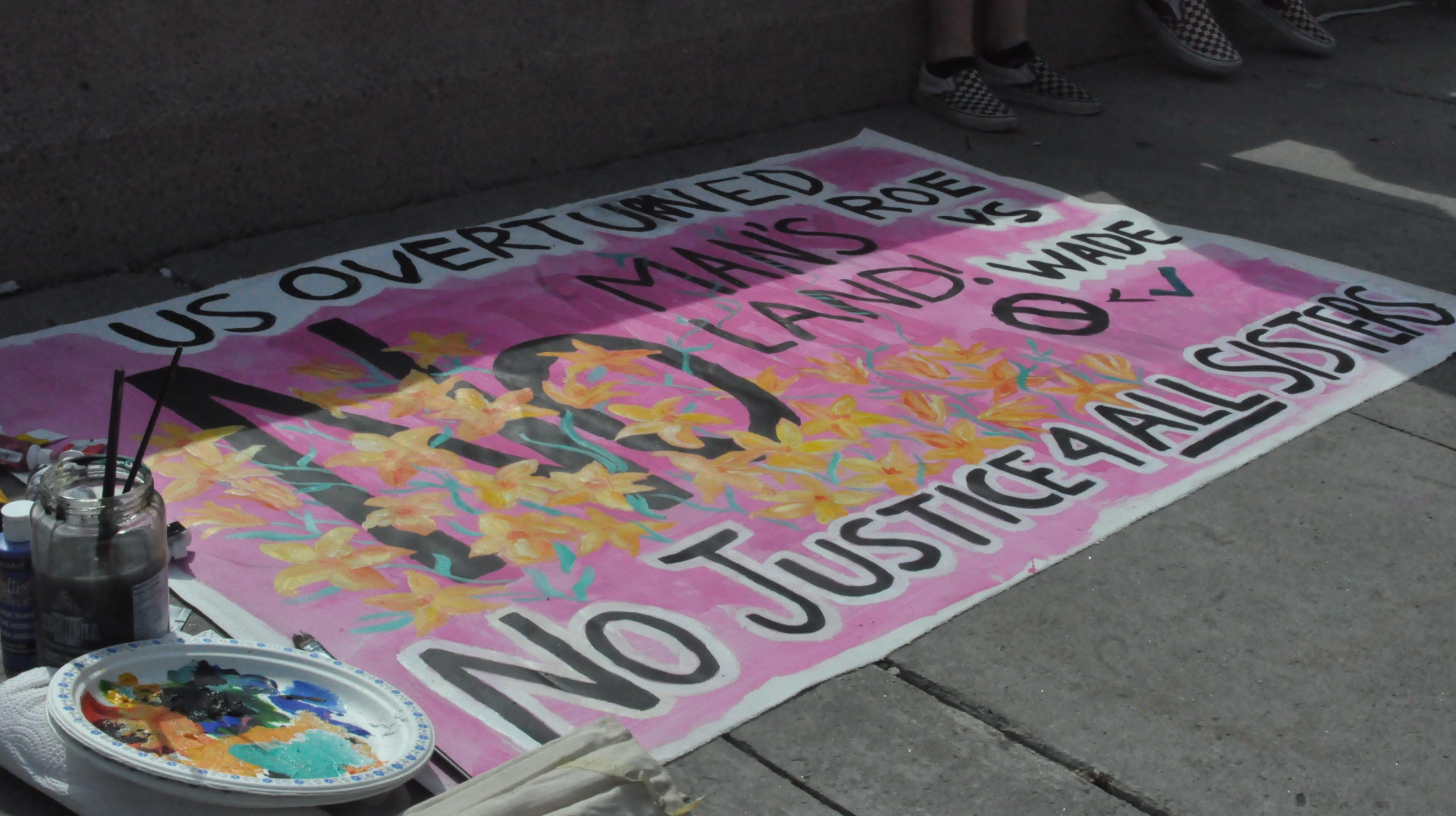
“Women for generations have fought for more rights in the United States, [only] to see this setback, to worry as well about how this can be expanded to more rights be taken away in the United States,” elaborated Canadian Prime Minister Justin Trudeau in a statement at a news conference in Kigali, Rwanda, at the Commonwealth Heads of Government Meeting.
“What’s the government going to do now? With the state’s doing what they’re doing? How are we going to protect those citizens? How are we going to help them? Because I think that we need to be there for them. Right? If [Canada] is saying that it’s a human right […] we need to stand up for that,” concluded Walker.
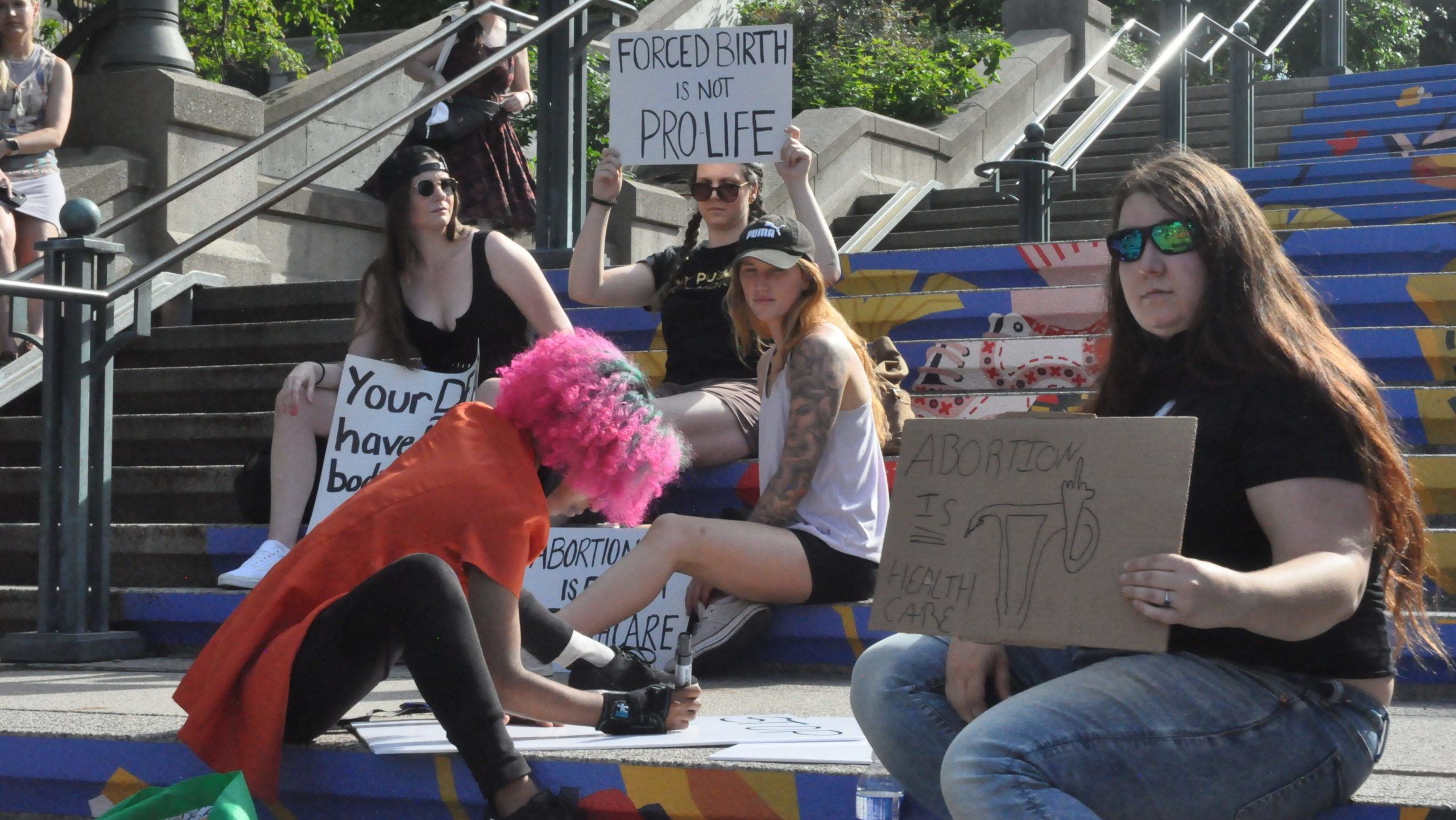
At large, the atmosphere of the protest was coloured by a discernable demand for accountability — that meant imploring movement from the Canadian government and condemning the actions of the Supreme Court Justices that voted to overturn Roe v. Wade in one fell swoop.
“A lot of people in this country like to do this thing about Canadian exceptionalism, that somehow this can never happen here, that we’re not the states. But we know just because abortion access was decriminalized in this country does not mean people have it,” concluded Owusu-Akyeeah.
